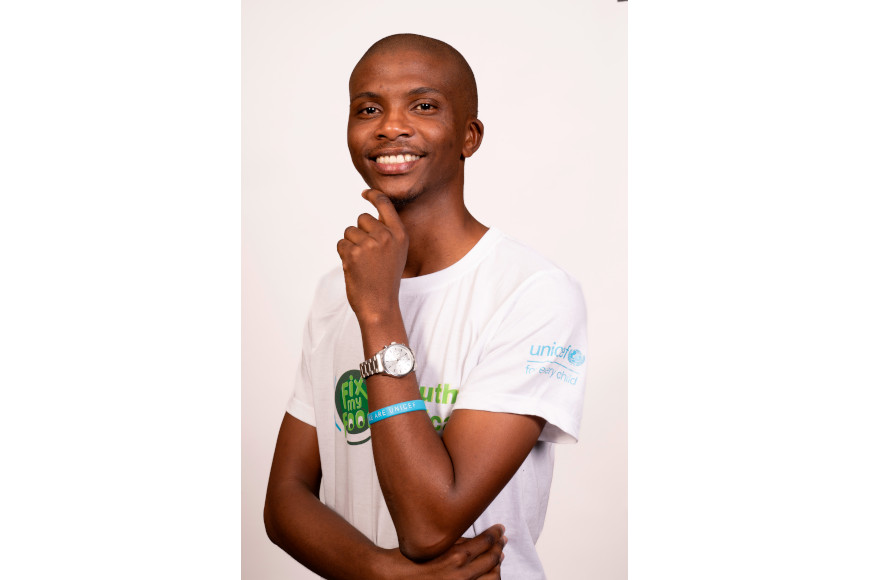Looking at improving the schools and universities food environments form an integral part of the life of Siphosethu Nase. The passionate Durban University of Technology (DUT) student is currently a postgraduate student. He is also a Fix My Food South Africa youth advocate whose passion lies in re-imagining campus food environments to ensure that healthy, affordable, and safe, consumed food is accessible to all students in South Africa’s Higher Education institutions.
He indicated that Fix My Food is a coalition of young people advocating for a fairer food system, where healthy food is available, accessible, affordable, and safe to be consumed by all people which is supported by the United Nations Children’s Fund (UNICEF) South Africa.
Nase highlighted his research study which focusses on the critical link between nutrition and the campus experience. “It seeks to address one of the serious public health issues which is unhealthy food environments in South African Higher Education Institutions (HEIs), which lead to poor eating habits and an increase in the prevalence of non-communicable amongst young people. This includes looking at issues such as affordability, portion sizes, and safety of the food items sold in campus food environments,” he said.
Owing to his involvement with his research study on a critical link between nutrition and the campus experience and one of the ‘Fix My Food’ advocates supported by UNICEF South Africa; Nase was approached for an interview with the BBC News, the news and journalism division of the British Broadcasting Corporation, providing coverage of current events from around the world and within the United Kingdom.
“ I was approached to assist with some of the work; leading to the Child Nutrition Report 2025, which revealed the alarming fact that for the first time in history, there are now more children in the world who are obese than underweight. The BBC News team reached out to me through UNICEF SA as part of their global coverage, to feature how young advocates like me are tackling nutrition challenges, especially in HEIs,” he expressed.
One of the key highlights of the report is that the number of overweight young people has now surpassed the number of underweight children. Nase indicated that to him the report means that this is a turning point in global nutrition.
“For years, the focus was on undernutrition, but now more young people are becoming overweight and obese than underweight. To me, as a student, the report reflects the reality of our faulty food systems which is manifested by our campus food environments; where unhealthy, oversized, cheap, and easily accessible than healthy foods dominate. The report should signal the urgent need for each university to rethink how we support students’ nutrition, because poor diets do not just affect health; they affect learning, productivity, and the overall student experience,” he shared.
In terms of raising awareness; especially given that studies on campus food environments suggest obesity is a growing concern within university campuses, exacerbated by the faulty campus food environments, Nase conveyed that there are plans in place to address this immense concern.
He emphasised that several steps are needed, and they begin with strong partnerships inside universities. Nase highlighted that university management, student support services, Student Representative Council members, and campus health units must work together to prioritise nutrition as a key part of student wellbeing. “These internal partners are closest to students and can drive real change in offerings on campus. Beyond this, we need policy frameworks for higher education institutions to guide healthier campus food environments, and this is where my study comes in. This should be supported by healthy food procurement policies to make nutritious meals easily accessible and affordable in campus dining environments. Also, student-led advocacy platforms like Fix My Food to ensure that the student voice remains central,” he replied.
Nase further relayed that partnerships with national and global stakeholders like the Department of Health, UNICEF, and civil society organisations need to be enforced to scale solutions across institutions, ensuring that South Africa’s higher education system collectively reimagines and transforms its food environments.
Explaining why it is vital for students and the DUT community to be part of such an awareness, Nase said that students are at the frontline of this crisis.
“They know the daily struggles of stretching R54.84 daily (this is from R1700 of NSFAS divided by 31 days) to cover three meals, of being surrounded by unhealthy and unaffordable options, and being bombarded with marketing of unhealthy products within university spaces. For the rest of the DUT community, being part of this awareness means being a leader in re-imagining food environments for higher education in South Africa. It is about showing that the community values the health dignity, and future of each student,” he added.
“I would like to close by saying, an equitable food environment is a transformed learning environment. By re-imagining our campus food environments, DUT has an opportunity to set a national precedent, ensuring that higher education institutions become champions of food justice. Also, the time to act is now, and students are ready to lead the way,” he concluded.
Pictured: Siphosethu Nase
Waheeda Peters

